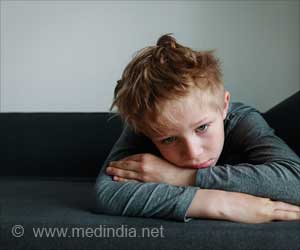Researchers have found that the more time teenagers spend on computers or mobile phones, the less they sleep, especially if the gadget is used just before bedtime.

The study found that those with screen time of more than four hours per day were three-and-a-half times likelier to sleep fewer than five hours at night. They also were 49 percent likelier to need more than an hour to fall asleep. In particular, teens who used a mobile phone or computer in the last hour were 48 and 52 percent likelier to take more than 60 minutes to fall asleep. Somewhat smaller risks of delayed or shortened sleep were observed among teenagers who used an MP3 player, tablet, game console or TV in the final hour before bedtime.
Researchers said that one quite simple reason for teenagers getting to bed later could be that screen time eats into sleep time. Another idea is that the bright light from devices interferes with circadian rhythm (the day-night system that tells our brain when we should sleep and when we should wake up). The media content, too, may play a role by causing increased psycho-physiological arousal, which means the mind is spinning just as it should be slowing down for the night.
The study said, "The recommendations for healthy media use given to parents and adolescents need updating, and age specific guidelines regarding the quantity and timing of electronic media use should be developed. The evidence is so strong that health watchdogs should overhaul guidelines for electronic device use by youngsters. The current recommendation by the American Academy of Pediatrics set down in 2004 is to not have a TV in the bedroom. It seems, however, that there may be other electronic devices exerting the same negative influence on sleep, such as PCs and mobile phones. The results confirm recommendations for restricting media use in general."
The study is published in the journal BMJ Open.
Source-Medindia
 MEDINDIA
MEDINDIA




 Email
Email










